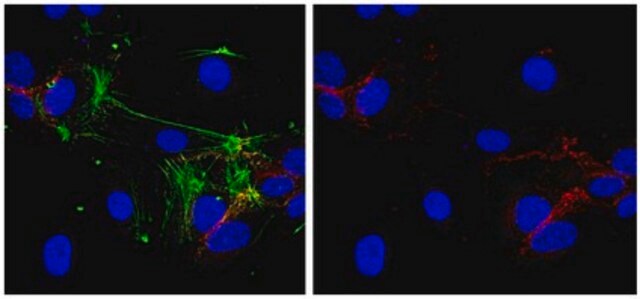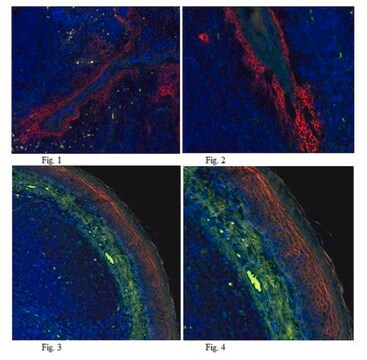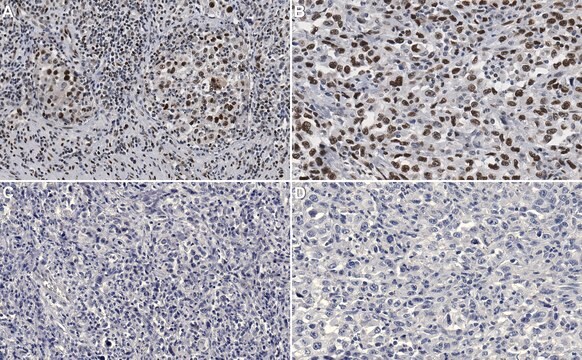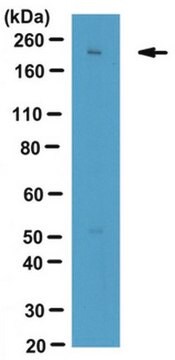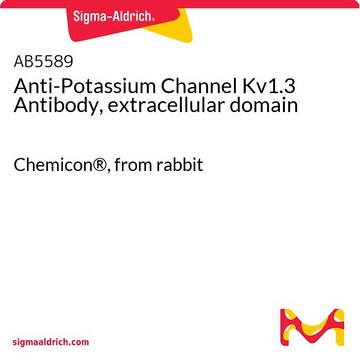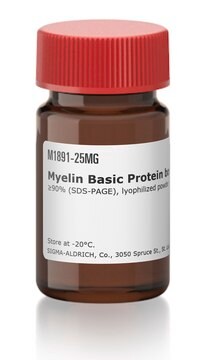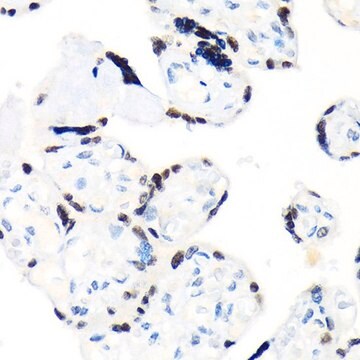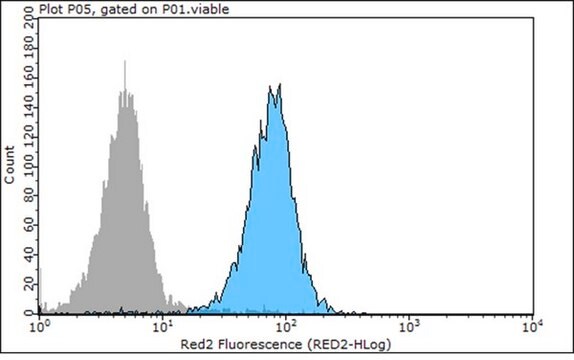SAB4200466
Anti-Desmoglein 2 (DSG2) antibody, Mouse monoclonal
clone AH12.2, purified from hybridoma cell culture
Sinónimos:
Monoclonal Anti-ARVC10, Monoclonal Anti-ARVD10, Monoclonal Anti-CDHF5, Monoclonal Anti-CMD1BB, Monoclonal Anti-Desmoglein 2 (DSG2) antibody produced in mouse, Monoclonal Anti-HDGC, Monoclonal Anti-desmoglein 2
About This Item
Productos recomendados
biological source
mouse
conjugate
unconjugated
antibody form
purified from hybridoma cell culture
antibody product type
primary antibodies
clone
AH12.2, monoclonal
mol wt
antigen ~150 kDa
species reactivity
human
concentration
~1.0 mg/mL
technique(s)
indirect immunofluorescence: 2.5-5.0 μg/mL using HeLa cells
western blot: 0.5-1.0 μg/mL using HeLa total cell extracts
isotype
IgG1
shipped in
dry ice
storage temp.
−20°C
target post-translational modification
unmodified
Gene Information
human ... DSG2(1829)
General description
Immunogen
Application
Biochem/physiol Actions
Physical form
Disclaimer
¿No encuentra el producto adecuado?
Pruebe nuestro Herramienta de selección de productos.
Storage Class
10 - Combustible liquids
wgk_germany
WGK 2
flash_point_f
Not applicable
flash_point_c
Not applicable
Certificados de análisis (COA)
Busque Certificados de análisis (COA) introduciendo el número de lote del producto. Los números de lote se encuentran en la etiqueta del producto después de las palabras «Lot» o «Batch»
¿Ya tiene este producto?
Encuentre la documentación para los productos que ha comprado recientemente en la Biblioteca de documentos.
Nuestro equipo de científicos tiene experiencia en todas las áreas de investigación: Ciencias de la vida, Ciencia de los materiales, Síntesis química, Cromatografía, Analítica y muchas otras.
Póngase en contacto con el Servicio técnico